Retail industries can often see problems within their stores and through their supply chains. From tracking supplies during shipping, to out-of-stocks, and manual entry errors, problems can become costly and waste several manhours. Though years of research and experimentation, Wal-Mart discovered that using RFID improved retail inventory accuracy, reduced out-of-stock problems, and helped mitigate loss of products.

RFID technology uses a chip and antenna inlay that are attached to a physical tag or is inlaid within a principal label for identification purposes. RFID can increase operational efficiency, eliminate human error, and reduce capital costs. RFID technology also provides access to real-time data, offering insight for better business decision making and precise asset management. Real-time inventory visibility was the primary reason Macy’s deployed their initial RFID rollout in 2013.
Wal-Mart Stores, Inc. publicized the reintroduction of their RFID mandate program starting September 2, 2022. Over the past couple of decades, Wal-Mart has been working with some of their suppliers in the United States to incorporate RFID as a standard practice. These suppliers experienced the benefits within months of incorporating the technology, increase their efficiency and their profits.
Zebra Technologies is the global leader in providing top-quality products that range from just starting out to advanced equipment. From fast, simple solutions to a planning long-term sustainability, the specialists at Imprint Enterprises can help you understand what you need to become compliant with Wal-Mart’s mandate and avoid unnecessary fines.
RFID uses a miniature chip and attaches an antenna inlay to a hard, physical tag or is inlaid within a principal label for identification purposes. Breaking that down further, the miniature chip within an RFID tag is where all data and information is stored. The chip and antenna make up the RFID inlay, which is kept within tag material, which can then be encased and mounted to a physical item (device, equipment, etc.).
Each tag has its own unique serial number and can be read in groups instead of having to scan each one individually. RFID tags can be read from a great distance, and you don’t even have to be in the line of sight for the scanner to read the tag. Variable data can be stored on a RFID tag, which can be changed throughout the life of the tag.
Due to the RFID tag in its entirety being active or passive, the antenna is always waiting to receive a signal from the RFID reader. Active tags are always awake, have their own power source and transmitter, and respond to the RFID reader’s signals. Passive tags are asleep until pinged by a signal, at which point it will then wake up and respond to the RFID reader.
RFID is very secure, using encryption and password protection features. Data storage on an RFID tag is available in various capacities, including 96-bit, 128-bit, and 512-bit, and can be changed throughout the life of the tag. For more information and answers to common questions, please refer to Imprint’s RFID technology FAQ for more information.
Benefits of Incorporating RFID Technology
RFID is a rapidly growing solution to many problems companies have experienced during product manufacturing, location, authentication, and tracking. Omnichannel commerce increases product orders by ease-of-access through online, mobile device, or in-person shopping.
Many retailers have picked up on requiring RFID use for products sold at their stores based on the multitude of benefits RFID provides. Nordstrom announced the requirement to use RFID on apparel, accessories, baby products, home items, and shoes to help monitor inventory and supply. Macy’s is increasing their requirements to enhance security measures.
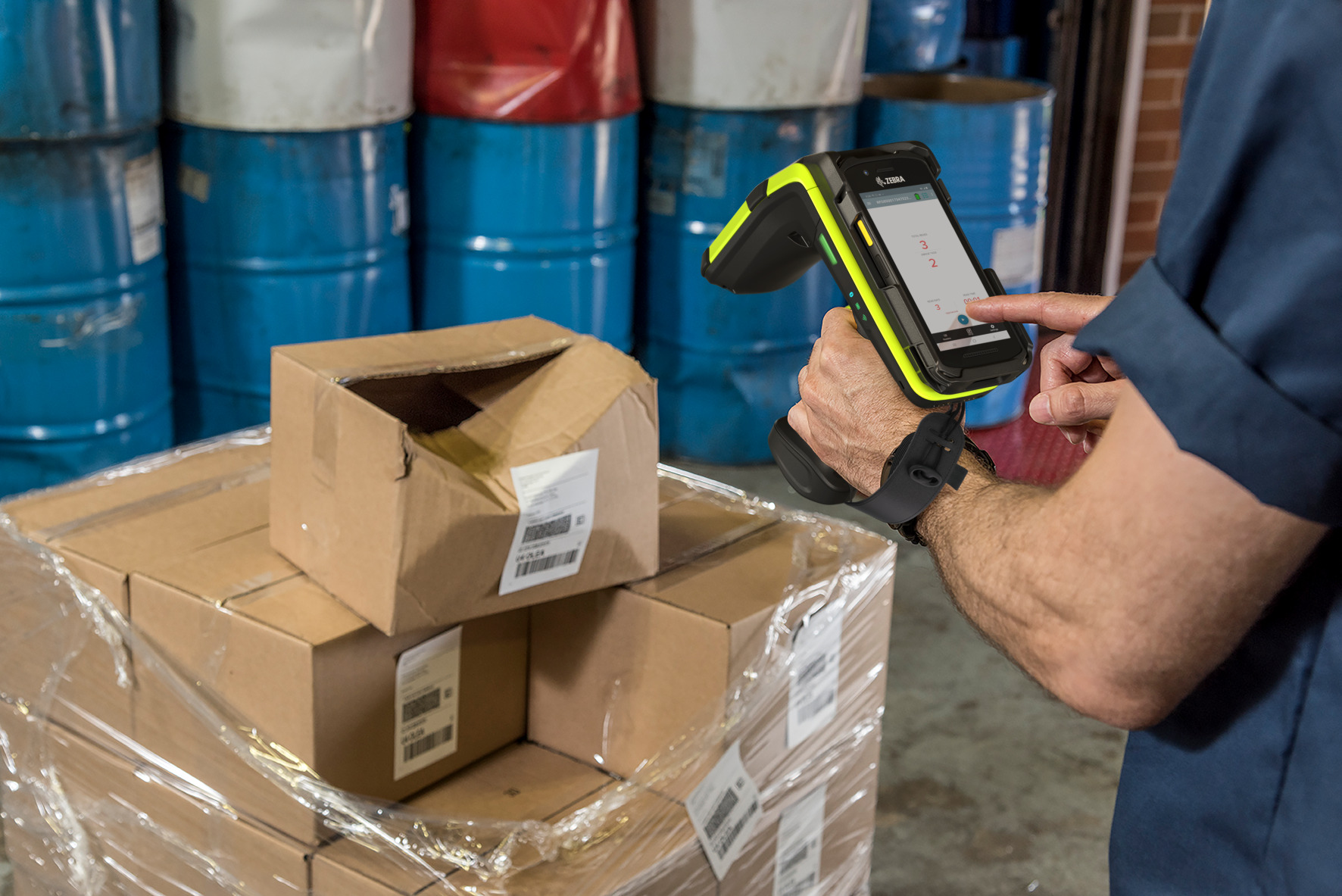
RFID can provide a more automated, hands-off approach, reducing the amount of physical touch or individual scanning of items. From an inventory standpoint, RFID can quickly geo-locate an item so an employee can locate the item, get to the item, identify it, retrieve it, and put it into a load. This can help ease issues created during labor shortages when there is an increase in order volume.
RFID aids in cross-docking, providing fast and reliable information for forklift operators. RFID provides real-time visibility to products without having to actively scan a visible barcode at each stage. This helps to minimize errors as RFID a has 100% read rate on every item.
Wal-Mart’s Mandate and What it Means for Your Company
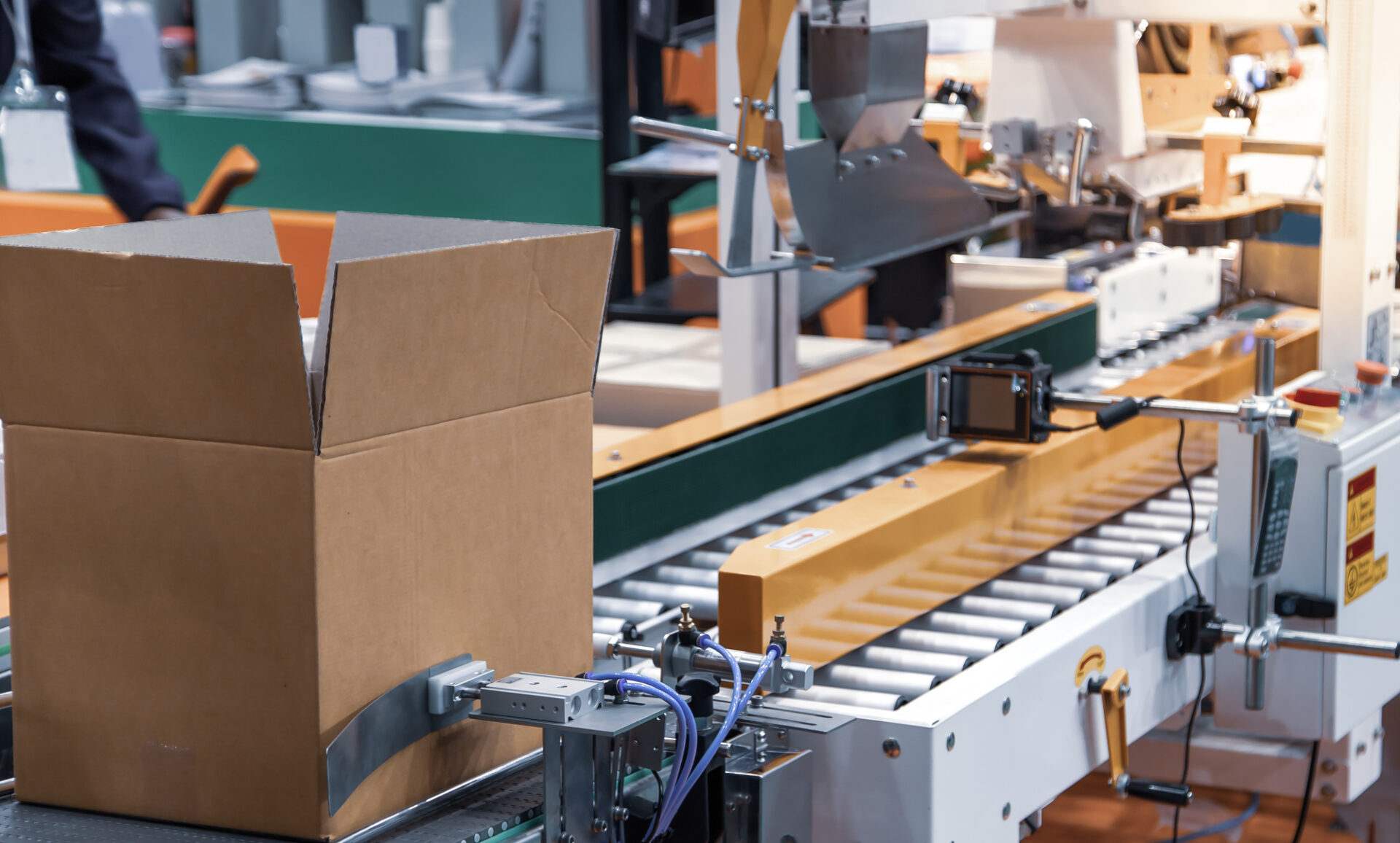
Wal-Mart Stores, Inc. started researching and experimenting with the potential of using RFID in 2003 to help with inventory and loss management. The pilot programs started at their distribution centers in Dallas, Texas. Within about a year, Wal-Mart saw cost savings that spurred them to invest in RFID technology.
Daisy Brands started using RFID in 2005, being one of the first companies to volunteer for the initial Wal-Mart mandate. Daisy discovered that it cut truck loading times in half within a few months. In January 2006, Texas Instruments, Inc. (TI) incorporated RFID into their facilities. TI was tagging pallets and cases of goods that were being shipped to Wal-Mart, easing the tracking of inventory.
Apparel companies like Levi Strauss & Co and Nike started incorporating RFID technology, seeing improved inventory accuracy throughout their supply chains while minimizing theft. Over the course of the past 20 years, companies have experienced dramatic improvements of on-hand accuracy, online order fulfillment, and sell-through.
In January 2022, Wal-Mart announced its reimplementation of the RFID mandate to many of their suppliers. Failure to comply with the mandate could result in fines and the loss of contracts. The technology is more mature and more financially viable, with a proven history of effectiveness. The new mandate requires the following suppliers to implement RFID onto its products:
-
-
- Apparel
- Automotive Batteries
- Entertainment/Electronics
- Home – bedding, furniture, bath, storage, décor, kitchen
- Sporting Goods
- Tires
- Toys
- Wireless products
-
Zebra Technologies Products
RFID readers can be fixed for maximum visibility and pinpointing location throughout the warehouse. Readers also come in handheld options to extend a network’s visibility beyond the walls of the warehouse. RFID printer encoders are designed for manufacturing facilities, providing manufacturers the ability to incorporate application into their systems. Software systems are used for easy deployment and manageability of readers and tags.
Fixed Readers
Fixed RFID readers are attached to warehouse doors, a production line, or within a warehouse for easy tracking and inventory automatically. Consider the following:
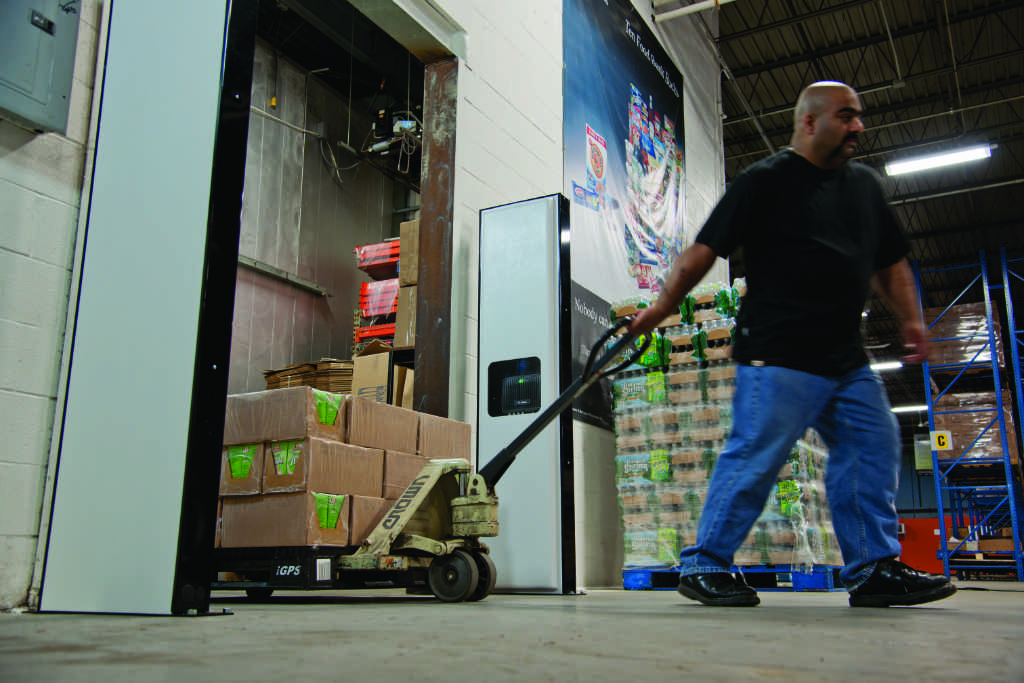
FX9600
-
-
-
- Requires no hard-wire connection.
- Best for warehouse, manufacturing, and loading dock environments with high-volume pallets and containers.
-
-
FX7500
-
-
-
- Requires a hard wire connection but provides faster and more accurate reads.
- Best for back-end applications in retails, warehouse, manufacturing, transportation, and business-class or office environments.
- Paired with a Linux-based network.
-
-
Handheld Readers
Need a portable option? Handheld readers are an excellent option for carrying around:
MC3330R
-
-
-
- Built on the Android platform with a large touch screen and keypad for comfortable, all-day use.
- Best for omni-channel fulfillment, inventory management, automatic replenishment, control with receiving, trunk stock demo/sample inventory, and pharmaceutical and laboratory inventory.
-
-
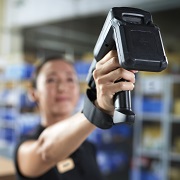
MC3390R
-
-
-
- Requires no hard wire connection.
- Best for long-range, inventory management, item location and tracking, automatic replenishment, cross docking, and control with receiving.
-
-
FRD8500 Sled
-
-
-
- Easily adds UHF RFID tag reading, writing, and locating abilities compatible with your Zebra TC20 RFID-ready mobile computer.
- Best for inventory management.
-
-
Printer Encoders
RFID printer encoders are designed for industrial durability and flexibility, with high print speeds and media roll capacity. Printer encoders can be easy to manage and simple to integrate into your facility. There is even a thermal desktop printer for both direct and transfer options.
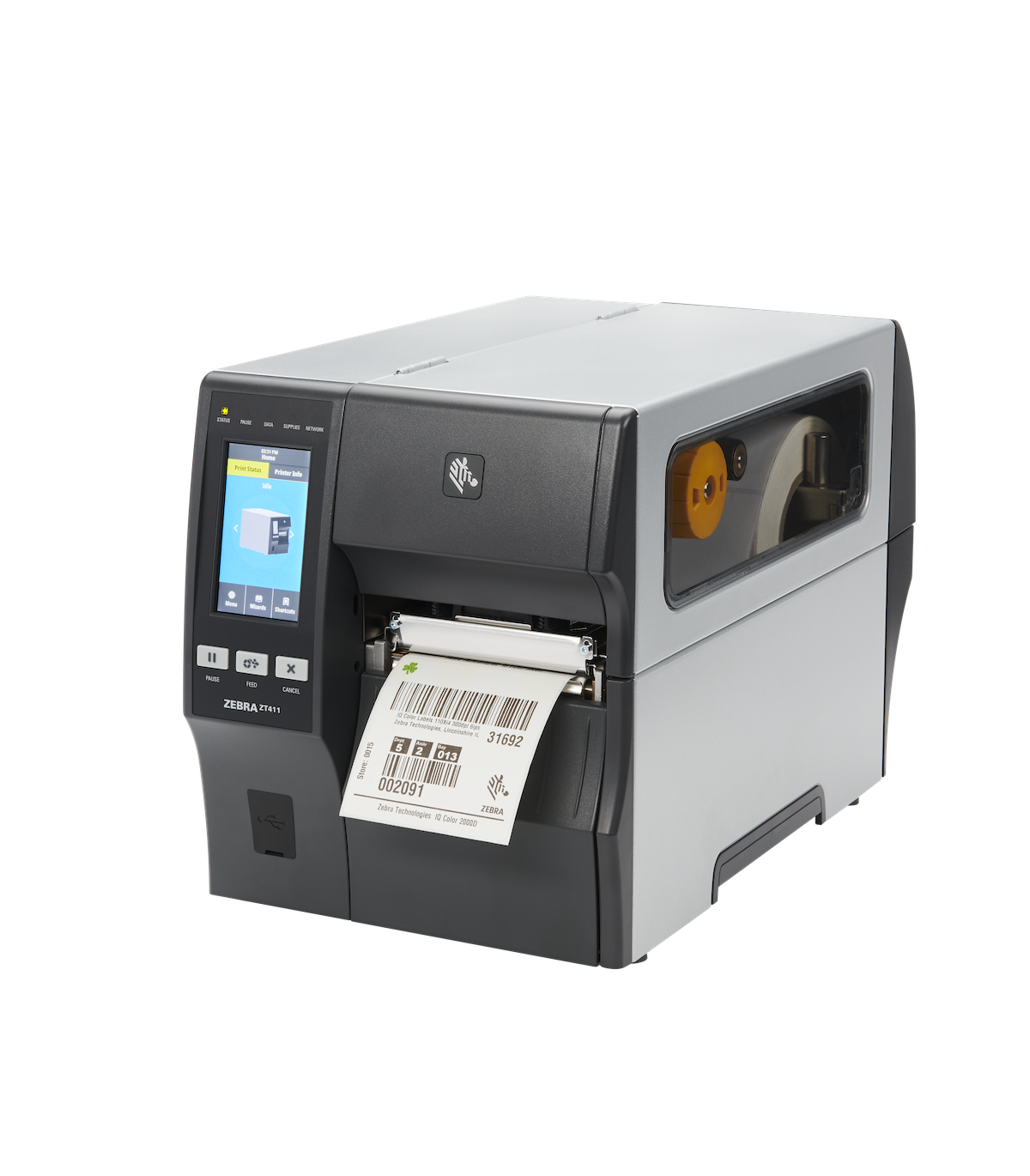
ZT600 Series
-
-
- Reduces media costs
- Tags are spaced close together (0.6 in/16mm) or narrower on most RFID inlays.
-
ZT400 Series
-
-
- Easy to manage and simple to integrate.
- Adaptive encoding technology allows for excellent media flexibility and simple RFID calibration, eliminating complex placement guidelines.
-
ZD500R
-
-
- RFID tag thermal desktop printer, available in direct thermal and thermal transfer models.
- Compatible with inlays from all leading suppliers.
- Able to be used with a variety of RFID labels and tags from small, item-level hang tags to large case and pallet labels.
-
Software
Existing barcode software management systems, such as an Enterprise Resource Planning (ERP) system, Warehouse Management Software (WMS), or Manufacturing Management Software (MMS), may already be compatible for a simplified RFID integration. This allows for quicker deployment and manageability of RFID readers within a facility. Typically, Windows® Server 2003, Solaris® 9 or 10, and Red Hat Enterprise Linux® can all be integration compatible systems.
Another option is to upgrade to software systems that can manage all devices and data for you for a more efficient process, such as MotionWorks®. This platform collects, manages, and analyzes sense and state data from tagged enterprise resources, feeding into a single integrated management console for enhanced visibility of the location and state of every tagged item.
Call Imprint Enterprises to Enhance Operations with RFID Technology
Wal-Mart’s RFID mandate for their suppliers started September 2, 2022, for items sold in their stores across the U.S., in Puerto Rico, and online. The visibility RFID provides can show insights to shopping trends while minimize costs associated with out-of-stocks and theft. RFID tech has proven to increase operational efficiency while eliminating human error and minimizing costs, providing real-time data and tracking.
Many major retailers are requiring RFID to be used on the products sold in stores. Target, H&M, Victoria’s Secret, Zara, Lululemon, Levi’s, Nike, Dillard’s, and Macys find RFID helps with increasing customer experiences, helps manage loss prevention, and can keep a more accurate inventory log.
The benefits of using RFID are even seen across multiple industries, including automotive, agriculture, oil and gas, aerospace, and construction. These companies find they can track equipment, inventory, and parts more effectively while also providing an added layer of security.
Zebra Technologies has over 30 years of experience and is a leading expert in barcoding technology. Zebra rigorously tests their products in multiple R&D facilities, making sure you receive the quality you deserve.
Imprint Enterprises is a Premiere Solution Partner with Zebra Technologies. Imprint is a company that grows with you, providing your business with an affordably priced solution. Imprint builds a lifelong relationship with you and your company that is based on quality and trust with Specialists that can help you determine what you need.
Contact Imprint Enterprises today to discuss Zebra’s RFID solutions to ease you into a smarter future.





